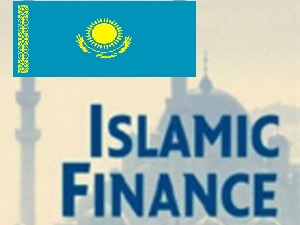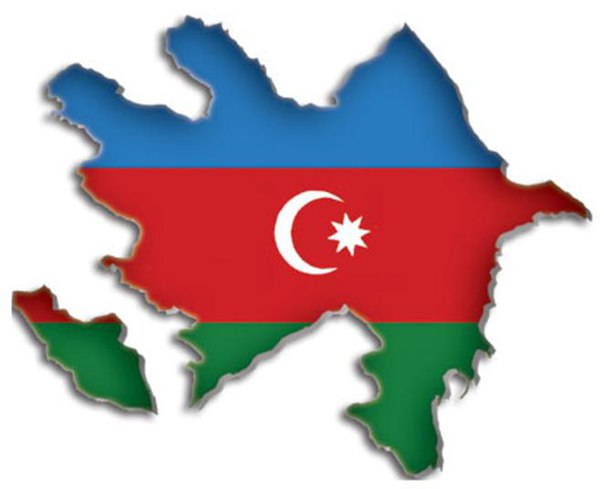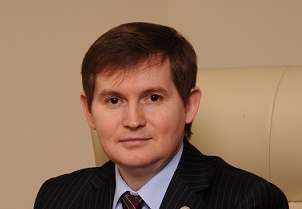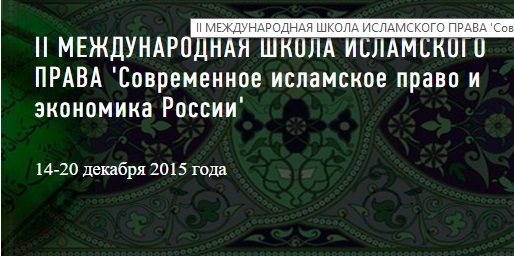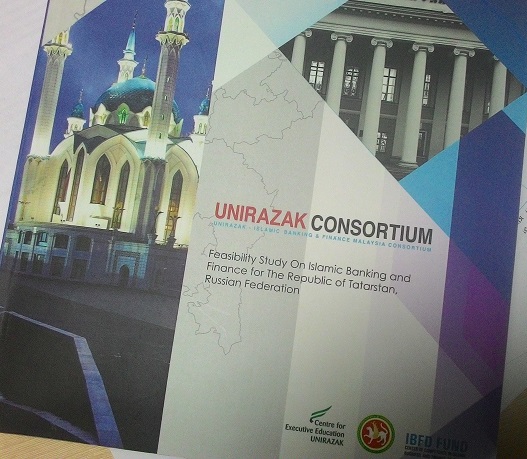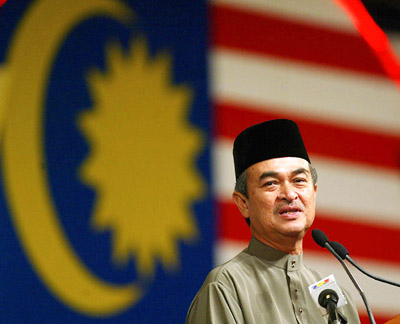Homepage | About us |
Advertise | Partners |
 Contacts | Contacts |
 Русский Русский
|
 |
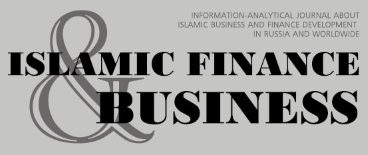 |
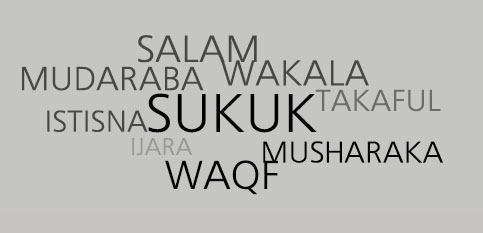 |
Latest News
Recent Comments
|
Global Perspective15.11.2010Global Perspective
Franklin Templeton Investments’ entry into the Malaysian market has raised the country’s asset management profile in the eyes of the world and introduced a whole new investor base to the firm. NAZNEEN HALIM explores the prospects of this symbiotic relationship. 
Global Perspective
Franklin Templeton Investments’ entry into the Malaysian market has raised the country’s asset management profile in the eyes of the world and introduced a whole new investor base to the firm. NAZNEEN HALIM explores the prospects of this symbiotic relationship. Malaysia is at the forefront of the Islamic banking and finance sector. Don’t take it from me, but you can trust Dr Mark Mobius when he says so. Dr Mobius, the world’s leading emerging markets guru and executive chairman of the Templeton Emerging Markets group — which is part of Franklin Templeton Investments — was in town this month during the launch of Franklin Templeton Asset Management, along with Sandeep Singh, country head of Franklin Templeton Asset Management (Malaysia), to speak to Islamic Finance Asia. Since the start of the year, Malaysia has seen a positive shift in investor interest, in part due to the country’s status as an emerging market; an exciting prospect for investors seeking to diversify from developed markets, and the soundness of its regulations and infrastructure. A mean, and most certainly desired, combination. Franklin Templeton Investments is the second US asset manager to set up shop in Malaysia this year, following the Malaysian government’s issuance of 14 licenses to allow international companies to form Islamic fund management businesses with tax exemptions until 2016. The government had also revised foreign ownership rules on Shariah compliant businesses, increasing the country’s appeal to foreign issuers and investors alike. Numbers always provide a comforting prospect, and with growth in developing Asian economies expected to leap to 9.2% this year, three times more than developing countries, what’s not to desire? According to Bank Negara Malaysia, the country currently has US$93 billion worth of Shariah compliant assets comprising 19.6% of the country’s total banking industry. Enter Templeton According to Sandeep Singh, the firm chose to explore the Islamic aspect of investing purely out of a need to diversify and fill the gaps of the 60 year old investment firm’s investment platform. “About three and a half years ago, we felt we needed a presence in the MENA region and explored the Islamic realm of investing. During that time, we identified another pure asset management firm based in Dubai called Algebra Capital, which we eventually acquired. We had been evaluating Shariah compliant investment firms for a few years then, prior to the acquisition, and based on our experience in investing in various companies and countries which adhered to the Shariah, we decided to go ahead with this. Seeing the development of Malaysia’s legal and regulatory frameworks, we were even more encouraged to apply within the country,” Sandeep clarified. Dr Mobius, who has circled the globe many times over, believes that Malaysia is in the strongest position among other emerging markets for Islamic finance due to its encouragement and incentives towards foreign firms opening up in the country. “Malaysia has made a point of welcoming banks and other investment companies to come here and establish Islamic funds, so I would say Malaysians are really being quite effective in their program. Of course, in the Middle East you have all these products, but they are not organized to encourage international participation.” In terms of expected market share from Templeton’s Malaysian set up, Dr Mobius wants it all. “We want all of it (laughs)! For now, we’d be happy with 5% to 10% of market share, as we realize that there are other players in the market; which is good. It is always good to have other players and healthy competition.” Sandeep believes that laying the right foundation and putting forth the right strategies to the firm’s clients are instrumental in developing the firm’s presence in the country: “It is difficult to put a number on the initial years, but more importantly, we have to lay the right foundation, put forth the right strategies to our clients and make full use of our global resources. Dr Mobius himself is very keen on supporting the Shariah platform: “Being a global player and entering this space, we certainly have big plans. We are not doing this just to be one of the many players. If you look at the industry, a lot of them are quite local; there are very few global names, and we want to stand right up there with the global players and establish our name.” Dr Mobius chipped in by stating that the company is not necessarily competing with the local firms in Malaysia and is definitely taking it internationally: “We’d like to extend our products originating from the Malaysian office to the rest of the world. As you know, we have an office in Dubai, the Middle East and Africa, and we think these products with our banner will attract other investors; not necessarily just from Malaysia.” Islamic finance: the panacea? Dr Mobius believes that the recent credit crisis, which the world is still recoiling from, has woken people up to the reality and sensibility of equities. “Islamic finance is perfectly attuned to the concept of equities, so in that sense, there could be a big expansion of this activity. One of the wonderful things about Islamic finance is its emphasis on equities. Because the principle of Islamic banking is that you keep your clients close to you, working with them closely, basically forging an equity relationship. Islamic banking is a mutual relationship that ties people together,” Dr Mobius emphasized. In terms of Shariah compliant investment products, Dr Mobius and Sandeep are both open to the prospects that are abound in the promising amalgamation of Islamic finance and emerging markets. “The sky is the limit. We could do a frontier Shariah product because now our frontier funds are growing at a very rapid rate. We could have a BRIC, we could have a global, we could have an Asia, Eastern Europe, Latin America, Africa. We could have many permutations based on what we’re doing already — in a Shariah compliant way,” Dr Mobius revealed. Currently working with Algebra Capital on the fixed income products side and Amanie Business Solutions to provide Shariah advice, Franklin Templeton Asset Management is bullish on growing in Malaysia while utilizing the country as a platform to grow across the ASEAN region. Dr Mobius and his team are also banking on Malaysia’s strong position as an Islamic finance hub with good international relations to further boost investments in the country, and subsequently bring a new sort of consciousness to the entire region in terms of Islamic investing. “Malaysia is now growing at quite a fast pace and that is going to be good. And the interesting thing that is going to happen, going forward, is that the ASEAN region will begin to realize that they’ve got to do more and work more closely together in order to act as a way into China. That means you’ve got to have common rules and regulations for securities, you’ve got to open your borders and have free trade agreements between Burma, Indonesia, Malaysia, Singapore, Vietnam. This whole region has to work together, and that is going to open the door to real big trading in Islamic products. Because you’ve Islam in Indonesia, Malaysia, the Philippines, Thailand and Vietnam, there are lots of opportunities in this direction; therefore we would definitely like to see more integration within the ASEAN countries.” However, even the emerging markets guru will tell you, despite his unabashed optimism, that Islamic finance without standardization will eventually stifle cross-border trade and act as a spanner in the works for the flow of liquidity. “One of the challenges in this area is the definitions — where you can invest and where you can’t invest. Different individuals have different opinions, and I think eventually, there is probably going to be an association or organization that monitors this and creates classifications which can be agreed upon by everyone. I think that is also one of the reasons why liquidity has not been that good — because the products are so different. Standardization, rules and regulations on what is Shariah compliant and what is not, which companies qualify and which don’t, are instrumental in creating trade and, eventually, liquidity. When you have standardization, it’s much easier for people to trade because they will switch from one product to another, knowing that it’s the same,” Dr Mobius concluded. Source:Islamicfinanceasia Latest News |
Editor's ColumnAnalytics
News in RSS format |
| © IBFD Fund, 2009-2026. Developed by Linova-MEDIA. Хостинг от uCoz. Design by WebRT |




